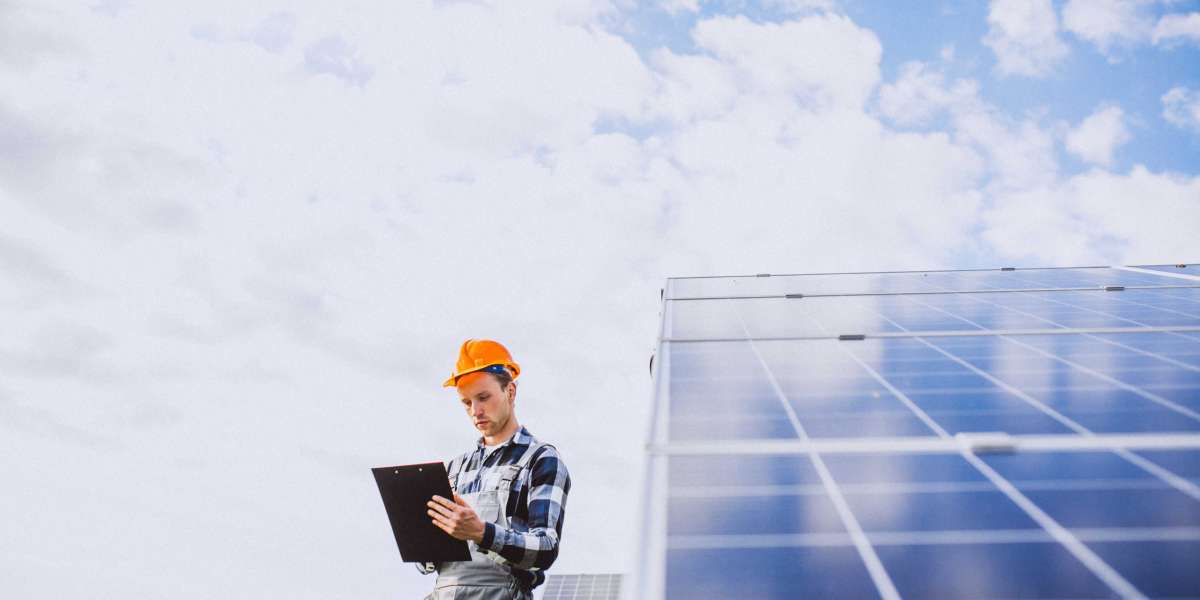As Pakistan faces increasing energy demands and frequent power shortages, the adoption of solar energy has become a viable solution. This comprehensive guide explores the solar system installation in Pakistan, covering essential steps from initial assessment to final commissioning. Understanding this process ensures a successful installation, enabling you to harness the benefits of solar energy effectively.
1. Initial Assessment
Energy Consumption Analysis
The first step in solar system installation in Pakistan is evaluating your energy consumption. Calculate the total energy usage of your household or business by reviewing past electricity bills and identifying major energy-consuming appliances. This analysis helps determine the size and capacity of the solar system required to meet your energy needs.
Site Evaluation
A thorough site evaluation is crucial for effective solar system installation in Pakistan. Inspect the location where the solar panels will be installed, typically the roof. Assess factors such as roof orientation, tilt, and shading from trees or nearby buildings. These factors impact the efficiency of solar energy capture and overall system performance.
2. Designing the Solar System
Component Selection
Choosing the right components is a key aspect of solar system installation in Pakistan. Select high-quality solar panels, inverters, and batteries to ensure optimal performance and longevity. Panels should have high efficiency and durability, while inverters convert the direct current (DC) generated by the panels into usable alternating current (AC). Batteries, if included, store excess energy for later use.
System Design
Designing the solar system involves creating a detailed layout that includes the placement of solar panels, inverters, and batteries. The design should consider local weather conditions, panel angles, and potential shading issues. A well-designed system maximizes energy generation and ensures efficient operation.
3. Permits and Approvals
Regulatory Compliance
Before installation, it's essential to secure the necessary permits and approvals from local authorities. Compliance with regulations ensures that the solar system installation in Pakistan meets safety standards and legal requirements. This may involve obtaining permits from municipal or district offices.
Grid Connection Approval
If your solar system will be connected to the national grid, you must obtain grid connection approval. Coordinate with the local utility provider to ensure that your system complies with grid requirements and can operate seamlessly with the existing power infrastructure.
4. Installation Process
Site Preparation
Preparing the site for installation involves clearing the area and making structural adjustments if needed. Ensure that the roof or installation area is structurally sound and can support the weight of the solar panels and mounting equipment. Proper preparation is crucial for a stable and secure installation.
Mounting Solar Panels
The installation begins with mounting the solar panels on the roof or another suitable location. Use mounting brackets to secure the panels and ensure proper alignment to capture maximum sunlight. The panels should be installed at an optimal angle to enhance energy efficiency.
Inverter and Battery Installation
Next, install the inverters and batteries. Inverters are typically mounted on walls or near the electrical panel, while batteries should be placed in a cool, dry location. Connect the inverters to the solar panels and the electrical system. If batteries are included, connect them to the system to store excess energy.
Electrical Wiring
Proper wiring is essential for the solar system installation in Pakistan. Connect the solar panels to the inverter and then to the electrical panel of the property. Ensure all electrical connections are secure and comply with safety standards. Proper wiring prevents potential issues and ensures the system operates efficiently.
5. Testing and Commissioning
System Testing
After installation, conduct thorough testing to ensure that all components function correctly. Verify electrical connections, check the performance of the inverter, and monitor the energy output of the solar panels. Testing helps identify and resolve any issues before the system is fully operational.
Final Inspection
A final inspection is performed to confirm that the installation meets all safety and quality standards. This includes reviewing installation documentation, checking system performance, and ensuring compliance with local regulations. A successful inspection signifies that the solar system is ready for use.
6. Maintenance and Support
Routine Maintenance
Regular maintenance is crucial for the longevity and efficiency of the solar system. This includes cleaning the solar panels to remove dust and debris, checking electrical connections, and monitoring system performance. Routine maintenance helps prevent issues and ensures the system continues to operate at peak efficiency.
Customer Support
Reliable customer support is essential for addressing any post-installation concerns. Many solar companies in Pakistan offer support services such as troubleshooting, repairs, and technical assistance. Access to effective customer support enhances the overall experience and ensures that any issues are promptly resolved.
Benefits of Solar System Installation in Pakistan
Cost Savings
One of the primary benefits of solar system installation in Pakistan is the reduction in electricity bills. By generating your own electricity, you decrease reliance on the national grid and lower your energy costs. Over time, the savings from reduced utility bills can offset the initial investment in the solar system.
Environmental Impact
Solar energy is a clean, renewable resource that reduces greenhouse gas emissions and environmental impact. Installing a solar system helps decrease reliance on fossil fuels and supports efforts to combat climate change. By choosing solar energy, you contribute to a more sustainable and eco-friendly future.
Energy Independence
Solar system installation in Pakistan provides energy independence by reducing reliance on external power sources. With a solar system, you have a reliable and self-sufficient source of electricity, even during power outages or grid failures. This independence ensures a stable power supply and enhances your energy security.
Increased Property Value
Properties with solar installations often experience increased value due to the added benefits of lower energy costs and environmental appeal. A solar system can make your property more attractive to potential buyers, providing a valuable return on investment.
Challenges in Solar System Installation in Pakistan
Initial Costs
The initial cost of purchasing and installing a solar system can be substantial, which may be a barrier for some homeowners and businesses. However, various financing options, government incentives, and long-term savings can help offset these costs and make solar energy more accessible.
Limited Awareness
Limited awareness about the benefits and process of solar system installation in Pakistan can hinder adoption. Educating the public about the advantages of solar energy and providing clear information about the installation process can help increase acceptance and drive growth in the sector.
Infrastructure Constraints
In some regions, inadequate infrastructure and grid limitations can pose challenges for solar system integration. Addressing these issues requires coordination with utility providers and investment in infrastructure improvements to support efficient solar energy integration.
Conclusion
The solar system installation process in Pakistan involves several critical steps, from initial assessment to final commissioning and maintenance. By following a systematic approach and considering factors such as energy needs, site conditions, and regulatory requirements, you can successfully implement a solar system that meets your energy needs and contributes to a sustainable future. The benefits of solar energy, including cost savings, environmental impact, and energy independence, make it a valuable investment in Pakistan's energy landscape. Despite challenges like initial costs and limited awareness, the growing adoption of solar energy represents a promising solution to the country’s energy challenges and a step towards a more sustainable and resilient energy system.








